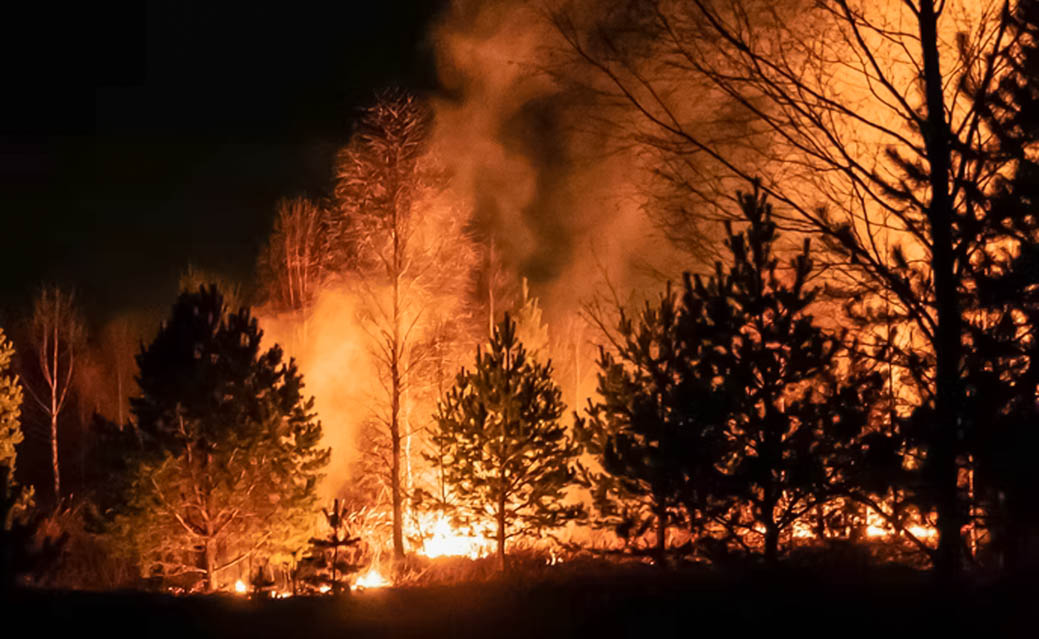Climate change provokes huge spike in global wildfires
As climate change is rapidly increasing, the warmer and drier conditions make the growing danger of wildfires a common occurrence.
Recent data reveals that climate change is intensifying faster than ever. With temperatures rapidly increasing every year, at the end of the century, it is likely there will be no ice in the arctic during the summer. Vice-Principal, Research and Professor of Atmospheric Physics Kent Moore at the University of Toronto Mississauga expresses his new discoveries about climate change to U of T News.
According to Moore, global warming is increasing by a fraction of a degree each year which will leave devastating results in the future.
With the ongoing increase in temperature and heat, a 1.5 Celsius increase will affect 14 per cent of the world population who will experience extreme heat. In addition, a 2 Celsius temperature change will affect 37 per cent of the population as well.
Moore comments on the effects of the slight fractional changes in temperature by 2050, saying, “This Last Ice Area will be the last area where these ecosystems will be able to survive, and we’re hoping this ice will persist through a period of time until we get our [carbon dioxide] emission under control.”
A small change in temperature can make a huge difference, and it is better to face the situation now than to delay action for the future, as later effects will be irreversible.
Relating this drastic effect to global warming on land, climate change brings more drought and higher temperatures, resulting in a spread of wildfires. The burning of plants and forests will release excess carbon dioxide into the atmosphere, causing more climate-changing carbon to release.
According to a report from the United Nations Environment Program (UNEP), the Western U.S., Northern Siberia, Central India, and Eastern Australia are currently experiencing more fires. Globally, catastrophic fires will increase by 2050, and consequently, more than 50 per cent by the turn of the century.
The effects of wildfires include questionable water quality, crop degradation, increased risk of smoke inhalation, decreased health and well-being, less land to grow food on, and negatively impacted employment and economic situations.
Five million students, about 7 per cent of the young people in the country, were affected by the closure of schools. In addition, property values decreased by 10-20 per cent causing families to stress about economic losses, depletion of homes, and essential services.
Agriculture will largely be impacted by the lack of rainfall and persistent hot weather. In areas with decreased humidity, vegetation could become flammable, allowing fires to spread rapidly.
In last year’s devastating wildfire in Pantanal, ranging from Brazil to Paraguay, one-third of what is considered to be one of the world’s most significant biodiversity hotspots was destroyed. UNEP researchers also mention how wetlands are difficult to restore, hence causing permanent damage to such areas.
To combat and decrease global warming, Moore believes that the government is “trying to make commitments that are the least impactful on the economy.” In addition, he says, “I think they understand that if they really move on this file, they’ll suffer a lot of political heat and they won’t get much benefit from it because the benefits will be accrued in 20 to 30 years. I don’t think there’s the political will to do it.”
If not the government, private sectors and sectors involving tourism, agriculture, and extractive industries can insist on reducing deforestation and promoting environmentally friendly practices. Fire risk prevention may also be introduced into corporate programs to combat and reduce carbon emissions.
Most importantly, it is up to the young climate activists of today to start making little commitments towards reducing climate change. Initiatives at the individual level can make a significant difference in reducing increasing temperatures and global warming.

